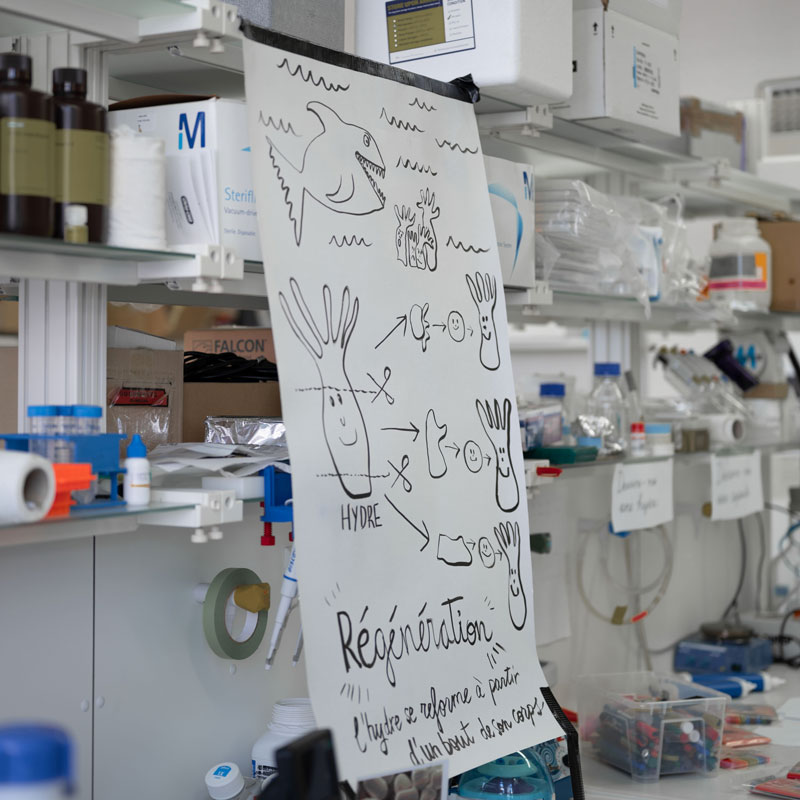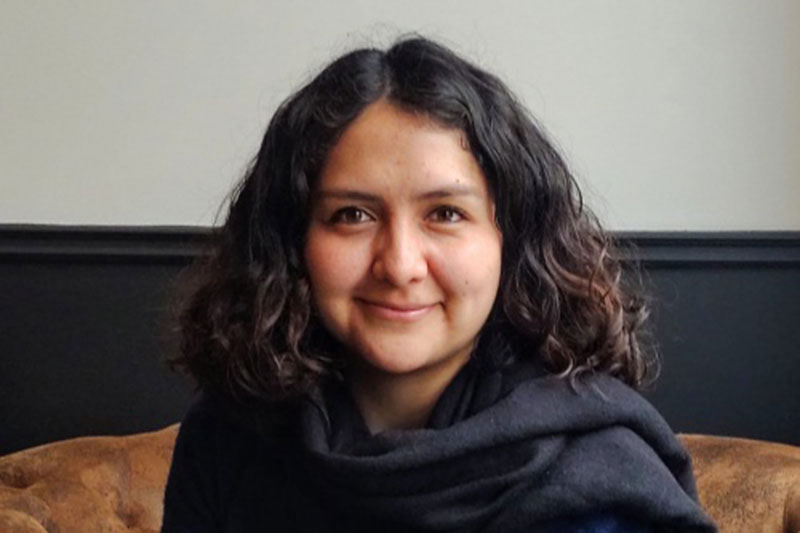To present to the public the research carried out in Aurélien Roux’s lab, PhD student Vania Macias Calvo wrote a poetic text that one discovers with joy! An unusual approach to communicate about science which was presented during the Nuit des Musées 2022. Get inspired!
Have you ever asked yourself about when something starts and when it ends?
Maybe you had thought about that when you met someone new or when you were deciding about quitting that job.
Have you questioned yourself about where things start and end?
Maybe they come to your mind, such problematic frontiers.
Why are we discussing this, and what do all when and where questions have in common?
Well, you have come across the concept of “the limit”.
The limit is the notion that represents how far a thing can go,
and at the same time, it defines the very thing.
It is a maximum and a minimum.
It is a boundary, and it exists in a specified place and time.
Now, can this limit change? Can other things pass by? Can it be regulated?
The same daily life questions can be applied to biological systems…
Life is tightly organized.
If we explore the microscopic world,
we observe that the cell is the most basic and fundamental unit of life,
it is highly active, and is limited by its membrane.
Even these tiny objects are defined by a limit.
In our lab, we try to understand how the cells behave if you limit the space where they can grow. For that, we put cells in capsules.
Have you tried bubble tea? The tea has pops made of alginate, if you chew these pops, you can taste a different flavor. In our experiments, the capsules are made of alginate too, except this time, we put cells inside instead of putting an exotic juice.
But, you know, life is way more complicated than just a group of cells enclosed in a bubble. At some point, they interact with each other to form a bigger functional unity, like a variety of tissues, organs, and even a whole organism! How is this organized?
In our lab, we also study Hydra, and no, it is not related to a marvel movie.
Hydra is a tiny organism like a worm, and it is captivating because it does not get old.
If it loses part of its body, it will regrow them entirely.
If we change the environmental conditions, how Hydra will rearrange its limits?
So we go beyond and explore the limits of hydra…
Maybe you wonder what is the point behind studying all of this?
When we do basic science, we just love knowing things because there is beauty and wonder. But yes, also because we hope it could positively impact the future. For instance, capsule studies can be used for cancer and stem cells research, developing of biocompatible drugs. The hydra studies could impact the regeneration research field. At the end…who knows, maybe we can contribute to expand the limits of our own knowledge and Science itself!

About Vania Macias Calvio
Vania Macias Calvio did a bachelor’s degree in Biochemistry at the Pontificia Universidad Católica of Chile. Since 2018, she is doing a Ph.D. In Biological Sciences with a mention in Cellular and Molecular Biology at the same University under Dr. María Paz Marzolo’s supervision. In September of 2021, Vania started a one-year fellowship in Aurélien Roux’s Lab, supported by the Swiss Government Excellence scholarship and focusing on Parkinson’s disease, one of the most prevalent neurodegenerative diseases worldwide. It is expected that the number of patients affected will increase in the following years with the aging of the population. Vania’s research focuses on studying a protein called Reelin, essential for the nervous system’s development and neuronal survival. Vania is interested in evaluating if Reelin could have a neuroprotective role in Parkinson’s disease and how the ESCRT complex is involved in the process. Her fellowship aims to understand better the ESCRT complex’s involvement in Parkinson’s disease, especially in the degradation of alpha-synuclein.


Leave a comment
The editors reserve the right not to publish comments or to abridge them.